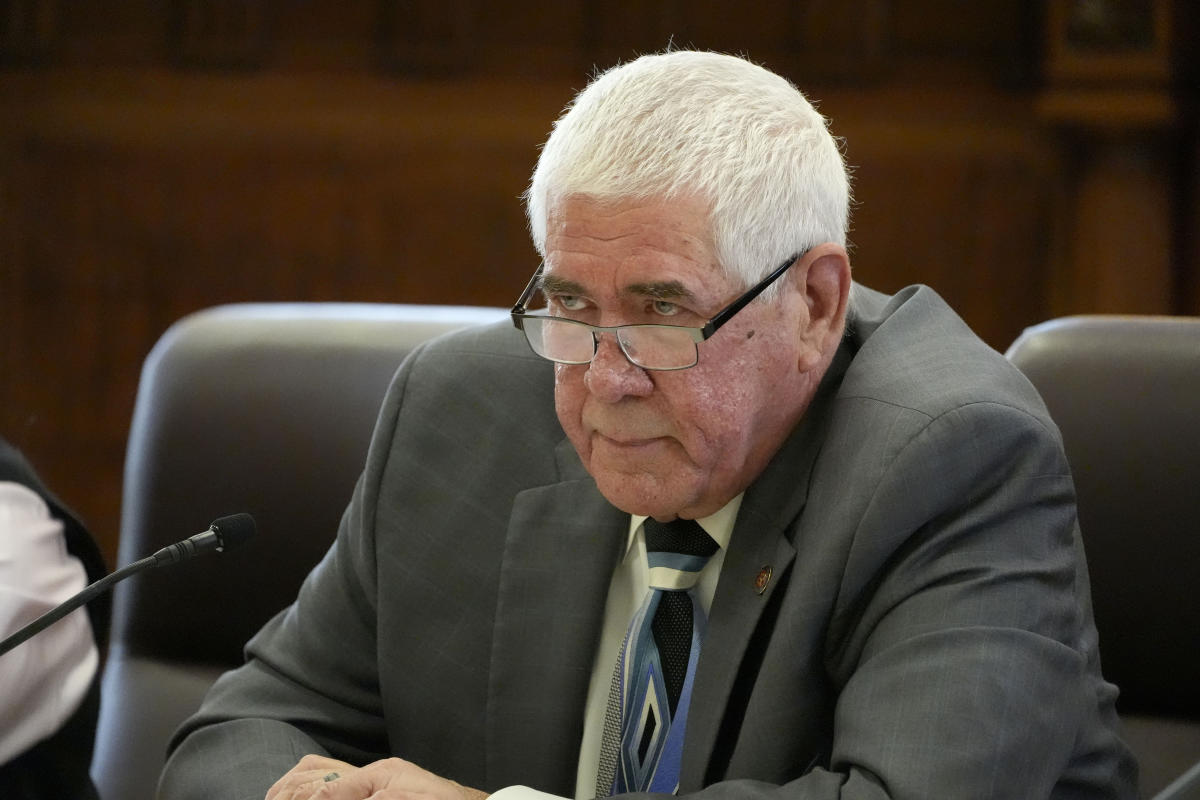JACKSON, Miss. (AP) — A proposal to expand Medicaid to tens of thousands of residents in one of the poorest states in the U.S. is still alive in the Mississippi Legislature. But Senate Republicans changed the plan Wednesday so it would cover far fewer people and bring less federal money to the state.
Mississippi’s Republican-controlled Legislature is considering expansion after years of opposition to policies allowed under the Affordable Care Act, a 2010 federal health care overhaul signed by then-President Barack Obama. The proposal passed by a committee Wednesday is the only Medicaid expansion proposal still alive after Senate Republicans amended a House bill instead of advancing a separate bill.
“We have a conservative plan here,” said Kevin Blackwell, chairman of the Senate Medicaid committee. “The House version was essentially a straight expansion.”
Blackwell called the Medicaid expansion plan “lite” and said it would expand eligibility for the federally funded health insurance program that covers low-income people. But it only expands access to those at 100% of the federal poverty level, just over $15,000 for one person. That’s less than the House of Representatives-approved figure of 138%, just under $21,000 for one person.
Mississippi has a population of about 3 million and its Medicaid program covered 754,585 people in January. Missy McGee, chairwoman of the House Medicaid Committee, said her proposal could expand benefits to as many as 200,000 people. Blackwell said the new version of the bill approved by his committee could make 80,000 people eligible for expanded coverage, but he expects only about 40,000 people would sign up.
Many Mississippi lawmakers have said expansion without a work requirement is a non-starter. The Senate version would require people to work at least 30 hours a week to qualify for expanded benefits, an increase from the House-approved requirement of 20 hours of work. Blackwell said the Senate made this change because it would require able-bodied adults to work “basically full-time” to receive Medicaid.
Mississippi ranks at the bottom of virtually every health care indicator and at the top of every inequality. Hospitals are struggling to stay open. The state also has one of the lowest labor force participation rates in the country. Expansion advocates have said the policy could help improve these conditions.
Opponents of the Medicaid expansion say the program would increase dependence on the government, increase wait times for health care and turn people away from private insurance. Republican Governor Tate Reeves is one of those critics and would likely veto any Medicaid expansion.
“It’s an expansion of prosperity for able-bodied adults who could work but choose not to,” Reeves said on social media Wednesday. “And so I will continue to do what I told voters I would do: fight the Obamacare Medicaid Expansion with every ounce of my being!”
Lawmakers could override his veto with a two-thirds majority of the House of Representatives and the Senate.
Republican leaders in the Legislature have said Georgia provides a model for Mississippi to pass a limited version of Medicaid expansion.
Of the 10 states that have not expanded Medicaid, only Georgia has managed to attach a work requirement to a partial expansion of benefits. But the state only requires people to document 80 monthly work hours, 40 hours less than what Mississippi senators have proposed. The Georgian program had terrible enrollment. From July 1 to mid-December, only 2,350 people enrolled in the program, far fewer than the 100,000 Gov. Brian Kemp’s administration had projected.
The Mississippi Senate is making expansion conditional on President Joe Biden’s administration approving work requirements. But the government has consistently withdrawn waivers from work requirements, arguing that people should not face barriers to getting health care.
In response to the House proposal, a spokesperson for the Center for Medicare and Medicaid Services told The Associated Press that Medicaid work requirements are a barrier to coverage but do not preclude granting a waiver. The Senate version would be an even harder sell.
The House proposal would have allowed the expansion to proceed without a work requirement, but the Senate version would not allow Medicaid expansion without a work requirement. Blackwell said he expects Biden to lose in November to a Republican whose administration would welcome a work requirement.
Under the reduced eligibility level approved by the Senate, Mississippi would also lose an additional financial bonus for expanding Medicaid that would be available under the House version.
____
Michael Goldberg is a corps member for the Associated Press/Report for America Statehouse News Initiative. Report for America is a nonprofit national service program that places journalists in local newsrooms to report on undercovered issues.





